利用碱激发矿粉制备无机防水涂料的研究毕业论文
2021-11-28 21:23:46
论文总字数:31564字
摘 要
本文以碱激发矿粉为基料、掺以适量填料和助剂制备无机防水涂料,通过调整水灰比、碱当量、水玻璃模数、填料掺量和填料种类,研究了填料掺量、填料种类对碱激发矿粉涂料流变性能的影响规律;水灰比、碱当量、水玻璃模数对碱激发矿粉涂料与水泥基底材表面的粘结性能的影响规律;不同水灰比、碱当量、水玻璃模数、填料掺量和填料种类的碱激发矿粉涂料的基本性能(耐水性、耐碱性、耐温变性、耐老化性)。所得结果对于提高碱激发矿粉涂料的性能具有重要的指导意义。通过系统的试验分析和研究,主要得到以下结论:
- 填料掺量的改变使碱激发矿粉浆体的流变参数值发生一定的波动,而填料种类对碱激发矿粉浆体的流变性能影响较大。混掺填料对浆体的流变性能有所改善,其中钛白粉与石英粉复掺的体系流变性能最优,屈服应力、塑性粘度和触变性分别为2.06 Pa、0.65 Pa·s和213.95 Pa·s−1。
- 随着龄期的增长,不同组分的碱激发矿粉涂料与水泥砂浆表面的粘结强度均增大。随着水灰比的增大,各个龄期的粘结强度大致呈下降趋势,其中水灰比为0.40时的28d粘结强度最大,为1.27 MPa。随着碱当量和水玻璃模数的增大,各个龄期的粘结强度基本上先增大后减小。碱当量为7%的碱激发矿粉涂料与水泥砂浆间的粘结性能最优,28d粘结强度为1.16 MPa;水玻璃模数为1.0的碱激发矿粉涂料与水泥砂浆间的粘结性能最优,28d粘结强度为1.58 MPa。
- 实验中不同组分的碱激发矿粉涂料的耐水性、耐碱性、耐温变性均满足相关标准要求。通过碱激发矿粉涂料的耐老化性能测试可知,当水灰比为0.40~0.55,碱当量为6~8%,水玻璃模数为1.0~2.2,填料掺量为10~15%,填料为钛白粉或钛白粉与石英粉复掺时,碱激发矿粉涂料的耐老化性能才能满足标准要求。
关键词:碱激发矿粉;流变性能;粘结性能;耐老化性
Abstract
In this paper, inorganic waterproof coating has been prepared by using alkali-activated mineral powder as binder, adding appropriate filler and auxiliary agent. By adjusting the water cement ratio, alkali equivalent, modulus of sodium silicate, filler amount and filler type, the influence of filler amount and filler type on the rheological properties of alkali-activated mineral powder coating has been studied; The influence of water cement ratio, alkali equivalent and modulus of sodium silicate on the adhesive properties between alkali-activated mineral powder coating and cement substrate surface has been studied; The basic properties of alkali-activated mineral powder coatings with different water cement ratio, alkali equivalent, modulus of sodium silicate, filler content and filler type have been studied. The results obtained are important guidance for improving the properties of alkali-activated mineral powder coatings. Through systematic experimental analysis and research, the following main conclusions were drawn:
Firstly, the change of filler content made the rheological parameters of alkali-activated mineral powder paste fluctuate to a certain extent, and the type of filler had a great influence on the rheological properties of alkali-activated mineral powder paste. The rheological properties of the paste were improved by adding hybrid filler, among which the rheological properties of the composite system of titanium dioxide and quartz powder were the best, and the yield stress, plastic viscosity and thixotropy were 2.06 Pa, 0.65 Pa·s and 213.95 Pa·s−1, respectively.
Secondly, with the increase of age, the bond strength of different components of alkali-activated mineral powder coating and cement mortar surface increased. As the water cement ratio increases, the bond strength of each age decreased in general. When water cement ratio was 0.40, the bond strength of 28d was the largest, which was 1.27 MPa. With the increase of alkali equivalent and modulus of sodium silicate, the bond strength of each age increased first and then decreased. The adhesive property between alkali-activated mineral powder coating with alkali equivalent of 7% and cement mortar was the best, and the bond strength of 28d was 1.16 MPa; The adhesive property between alkali-activated mineral powder coating with modulus of sodium silicate of 1.0 and cement mortar was the best, and the bond strength of 28d was 1.58 MPa.
Thirdly, in the experiment, the water resistance, alkali resistance and temperature resistance of alkali-activated mineral powder coating with different components all met the requirements of relevant standards. According to the aging resistance test of alkali-activated mineral powder coating, when the water cement ratio was 0.40~0.55, the alkali equivalent was 6~8%, the modulus of sodium silicate was 1.0~2.2, the filler content was 10~15%, and the filler was titanium dioxide or titanium dioxide mixed with quartz powder, the aging resistance of alkali-activated mineral powder coating can meet the standard requirements.
Key Words:alkali-activated mineral powder; rheological properties; adhesive properties;aging resistance
目 录
第1章 绪论 1
1.1 研究目的及意义 1
1.2 国内外对于无机涂料的研究现状分析 2
1.3 碱激发矿粉胶凝材料水化机理的研究 3
1.4 研究目标与研究内容 4
1.4.2 研究目标 4
1.4.3 研究内容 4
1.4.4 研究方法 5
1.4.5 技术路线 5
第2章 试验原材料和试验方法 6
2.1 试验原材料 6
2.1.1 矿粉 6
2.1.2 水玻璃 6
2.1.3 氢氧化钠 6
2.1.4 填料 7
2.1.5 助剂 7
2.1.6 水 7
2.2 试验仪器和试验方法 8
2.2.1 原材料物理性能测试 8
2.2.2 流变性能的测试 8
2.2.3 粘结性能的测试 8
2.2.4 基本性能的测试 9
第3章 碱激发矿粉涂料流变性能的研究 10
3.1 填料掺量对碱激发矿粉涂料流变性能的影响 10
3.2 填料种类对碱激发矿粉涂料流变性能的影响 13
3.3 本章小结 15
第4章 碱激发矿粉涂料粘结性能的研究 17
4.1 水灰比对碱激发矿粉涂料粘结性能的影响 17
4.2 碱当量对碱激发矿粉涂料粘结性能的影响 18
4.3 水玻璃模数对碱激发矿粉涂料粘结性能的影响 19
4.4 本章小结 20
第5章 碱激发矿粉涂料基本性能的研究 21
5.1 碱激发矿粉涂料的耐水性、耐碱性、耐温变性 21
5.1.1 不同水灰比的碱激发矿粉涂料耐水性、耐碱性和耐温变性 21
5.1.2 不同碱当量的碱激发矿粉涂料耐水性、耐碱性和耐温变性 22
5.1.3 不同水玻璃模数的碱激发矿粉涂料耐水性、耐碱性和耐温变性 22
5.1.4 不同填料掺量的碱激发矿粉涂料耐水性、耐碱性和耐温变性 22
5.1.5 不同填料种类的碱激发矿粉涂料耐水性、耐碱性和耐温变性 22
5.2 碱激发矿粉涂料的耐老化性 23
5.2.1 不同水灰比的碱激发矿粉涂料的耐老化性 24
5.2.2 不同碱当量的碱激发矿粉涂料的耐老化性 25
5.2.3 不同水玻璃模数的碱激发矿粉涂料的耐老化性 26
5.2.4 不同填料掺量的碱激发矿粉涂料的耐老化性 27
5.2.5 不同填料种类的碱激发矿粉涂料的耐老化性 28
5.3 本章小结 29
第6章 结论与展望 30
6.1 结论 30
6.2 展望 30
参考文献 32
致谢 35
附录 36
附录1 36
附录2 37
第1章 绪论
1.1 研究目的及意义
根据涂料基料化学成分的不同,可以将常用的建筑外墙涂料分为无机涂料和有机涂料这两大类。其中,有机涂料因其防水性好、弹性充足、颜色鲜艳、容易在附着物表面成膜的优点,在中国市场上较为流行[1]。但有机涂料仍然存在着耐候性差,容易老化、脱落,以致建筑物渗水严重的问题。而在国外发达国家,无机涂料产品占主流市场,它们主要是以碱金属硅酸盐或硅溶胶作为基料,再加入颜料、填料以及各种助剂配制成的涂料[2],具有良好的透气性、耐候性和耐污性,使用寿命长,且生产和使用过程中产生的环境污染较小。
无机涂料已在国外发达国家的涂料市场上广泛流行,市场份额达90%以上。不仅如此,国外发达国家对于无机涂料的性能研究较为领先,还对生产过程中产生的污染物进行严格控制。相比之下,我国的无机涂料市场份额却不足5%,对无机涂料的研究也比较落后。而近年来,随着国家一直在实施低碳节能减排计划,涂料行业也不断向节能减排的方向发展。继GB/T 35602−2017《绿色产品评价涂料》标准和T/CNCIA 02001−2017《绿色设计产品评价技术规范 水性建筑涂料》实施后,国家发改委、工信部等七部委又发布了《绿色产业指导目录(2019年版)》,这预示着绿色涂料将引导我国建筑涂料的生产、营销和发展[3]。与有机涂料相比,无机涂料具有明显的优势。首先,无机涂料的原材料可直接取自于自然界,例如以硅酸盐或硅溶胶作为主要成膜物质的无机涂料,其基料就来自于自然界中蕴藏丰富的石英砂岩。其次,无机涂料在生产和使用过程中造成的环境污染小,能够顺应国家倡导的节能减排的发展趋势。接着,无机涂料在使用过程中不会产生有害物质,对人体无毒无害。最重要的是,在相同生产成本的条件下,无机涂料具有大部分有机涂料达不到的良好性能。因此,无机涂料在我国具有广阔的发展前景。
请支付后下载全文,论文总字数:31564字
相关图片展示:
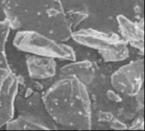
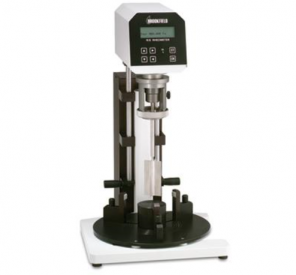
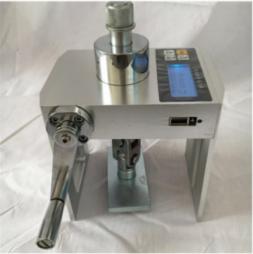
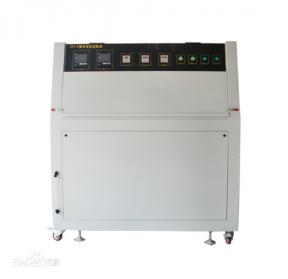
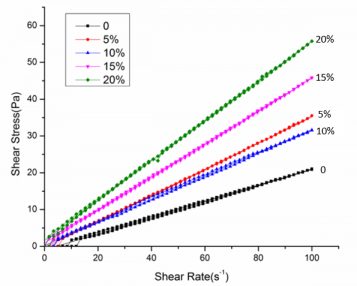
您可能感兴趣的文章
- 蒸养纤维掺杂高铁低钙水泥混凝土的抗海水冲磨性能研究文献综述
- TIPA对水泥-锂渣体系力学性能和水化性能的影响外文翻译资料
- TEA对锂渣-水泥复合粘结剂流变性能及水化性能的影响外文翻译资料
- 硫酸铝无碱液体促进剂的效果研究烷醇胺对硅酸盐水泥水化过程的影响外文翻译资料
- 新型C-A-S-H/PCE纳米复合材料:设计表征和对水泥水化的影响外文翻译资料
- 工业中碳捕获技术以及以水泥回转窑作为核心的吸附再生器外文翻译资料
- Ca/Al层状双氢氧化物的制备及其结构对水泥早期强度的影响外文翻译资料
- 蒸汽养护后混凝土养护方法对混凝土机械强度和透气性的影响外文翻译资料
- 含白云石或石灰石的偏高岭土水泥在相组成与抗压强度的异同外文翻译资料
- 与硅质铁尾矿结合的混凝土的耐久性外文翻译资料




